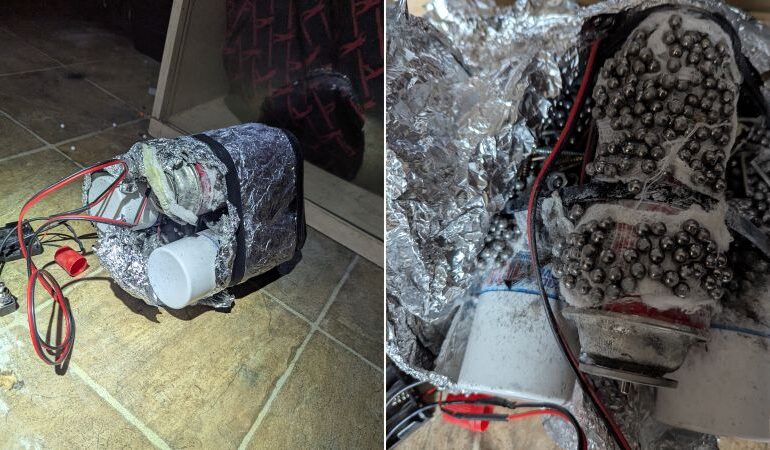California Man Arrested for Allegedly Funding ISIS Activities

A man from Long Beach, California, has been arrested for allegedly sending funds to the Islamic State of Iraq and Syria (ISIS), which is classified as a foreign terrorist organization. According to the Department of Justice, 28-year-old Mark Lorenzo Villanueva, a permanent resident of the United States originally from the Philippines, faces a potential sentence of up to 20 years in federal prison for attempting to provide material support to ISIS.
The FBI’s investigation revealed that Villanueva was in communication with individuals he believed to be ISIS fighters through social media earlier this year. In his messages, he purportedly expressed a strong desire to support ISIS and indicated his intention to send money for the group’s activities. Villanueva allegedly wrote, “It’s an honor to fight and die for our faith. It’s the best way to go to heaven. Someday soon, I’ll be joining.”
Over a span of five months, he reportedly sent a total of $1,615 through 12 payments to two intermediaries who transferred the money overseas, as indicated by records from Western Union. During his arrest, FBI agents discovered what appeared to be a bomb in his bedroom, as shown in photos released on the FBI’s social media accounts.
Patrick Grandy, the Acting Assistant Director in Charge of the FBI’s Los Angeles Field Office, stated, “Mr. Villanueva is alleged to have financially supported and pledged his allegiance to a terror group that targets the United States and our interests around the world.”
This arrest follows another incident earlier this year, involving a 19-year-old former member of the Michigan Army National Guard, Ammar Abdulmajid-Mohamed Said. He was taken into custody for allegedly attempting to execute a mass shooting at a U.S. military base in Michigan on behalf of ISIS. Said was apprehended on the day he planned to carry out the attack after launching a drone near the military base.
Said reportedly intended to target the Army’s Tank-Automotive and Armaments Command, located in a suburb of Detroit, which oversees the Army’s supply chain for tanks. Prosecutors allege that he offered assistance to undercover law enforcement officers by training them to use firearms and construct Molotov cocktails, as well as supplying armor-piercing ammunition and magazines for the intended attack.
Both cases highlight ongoing concerns regarding domestic threats posed by individuals allegedly influenced by extremist ideologies. The actions of Villanueva and Said raise significant questions about the effectiveness of counter-terrorism efforts within the United States and the challenges posed by radicalization through online platforms.






